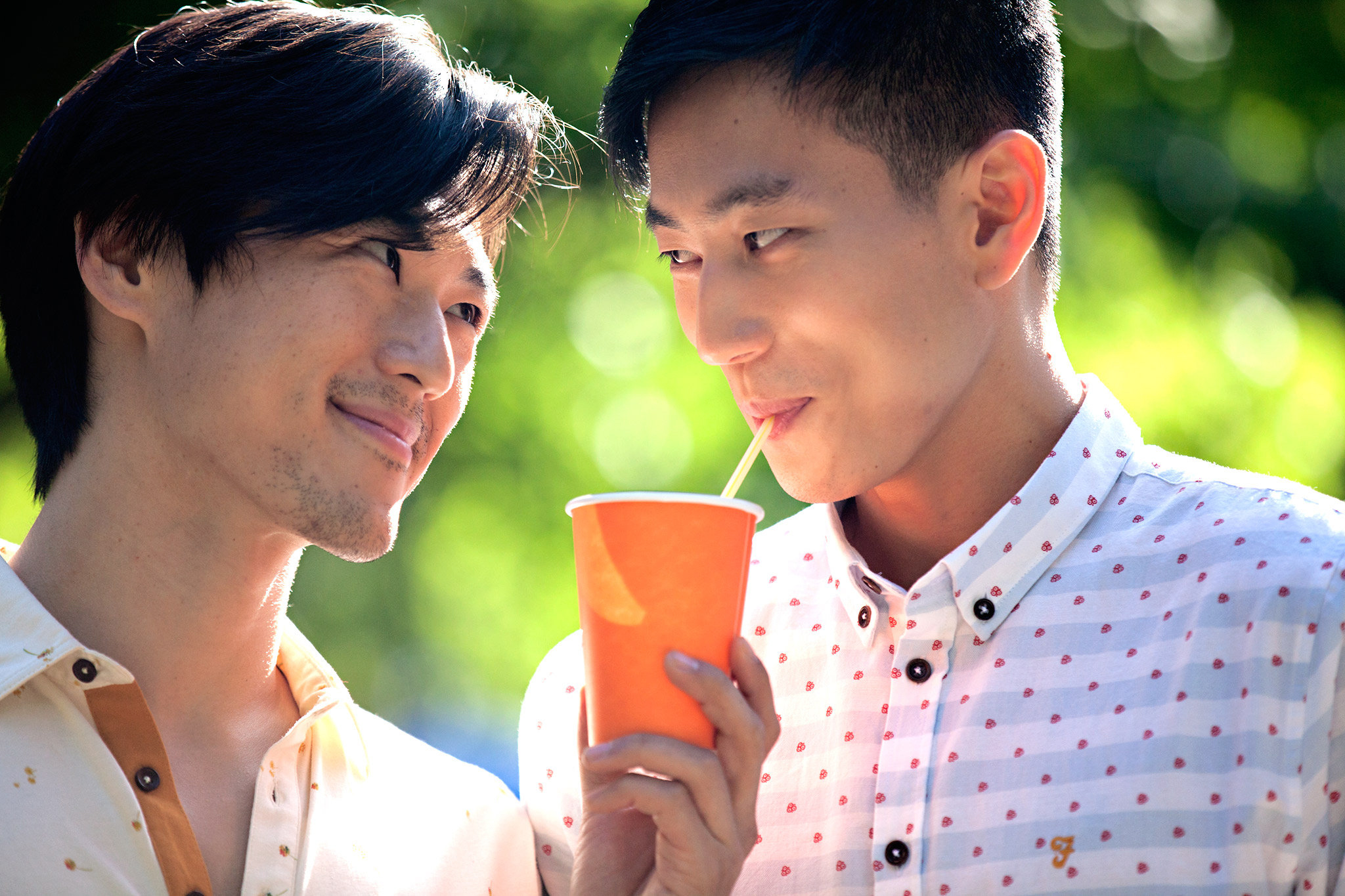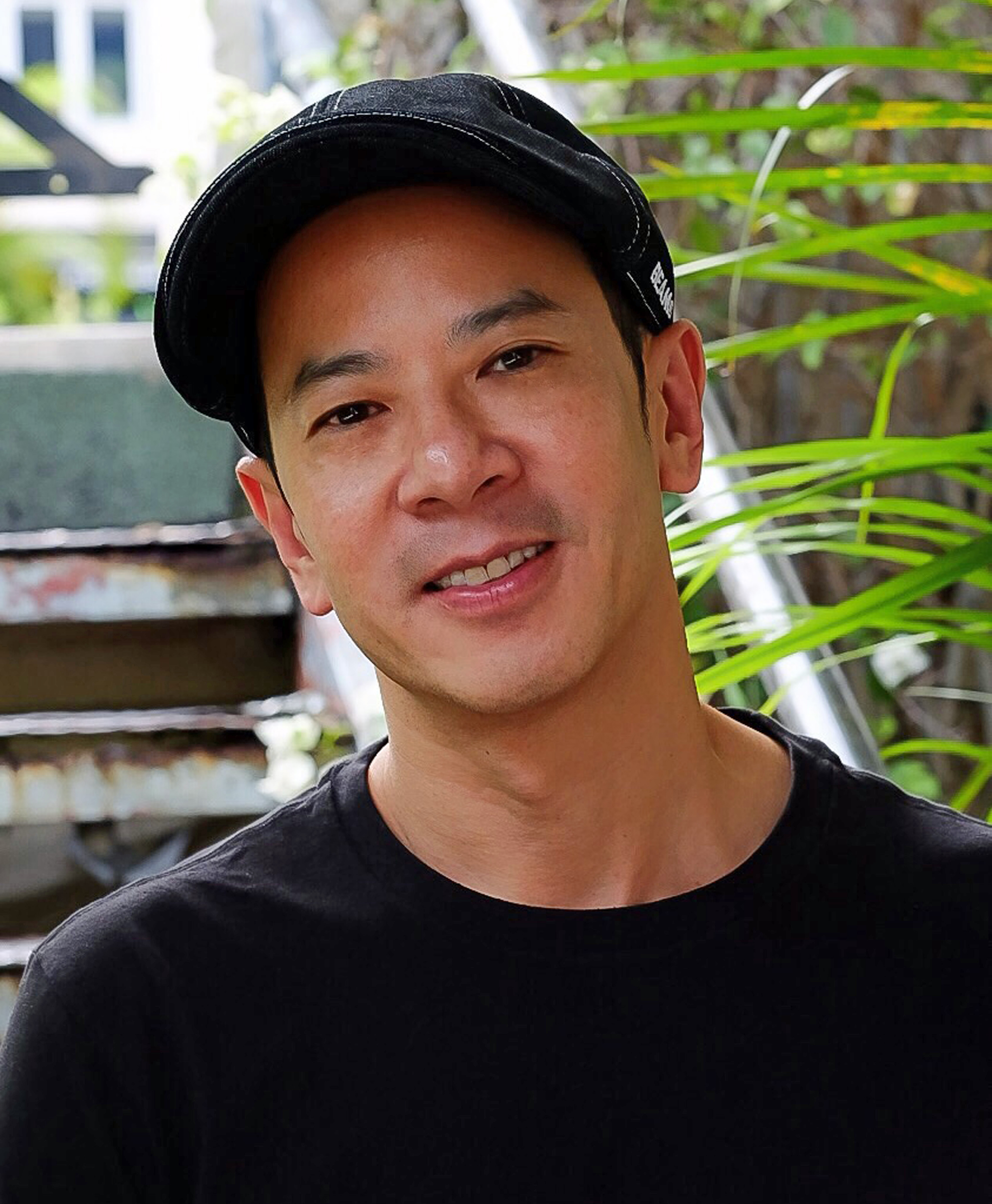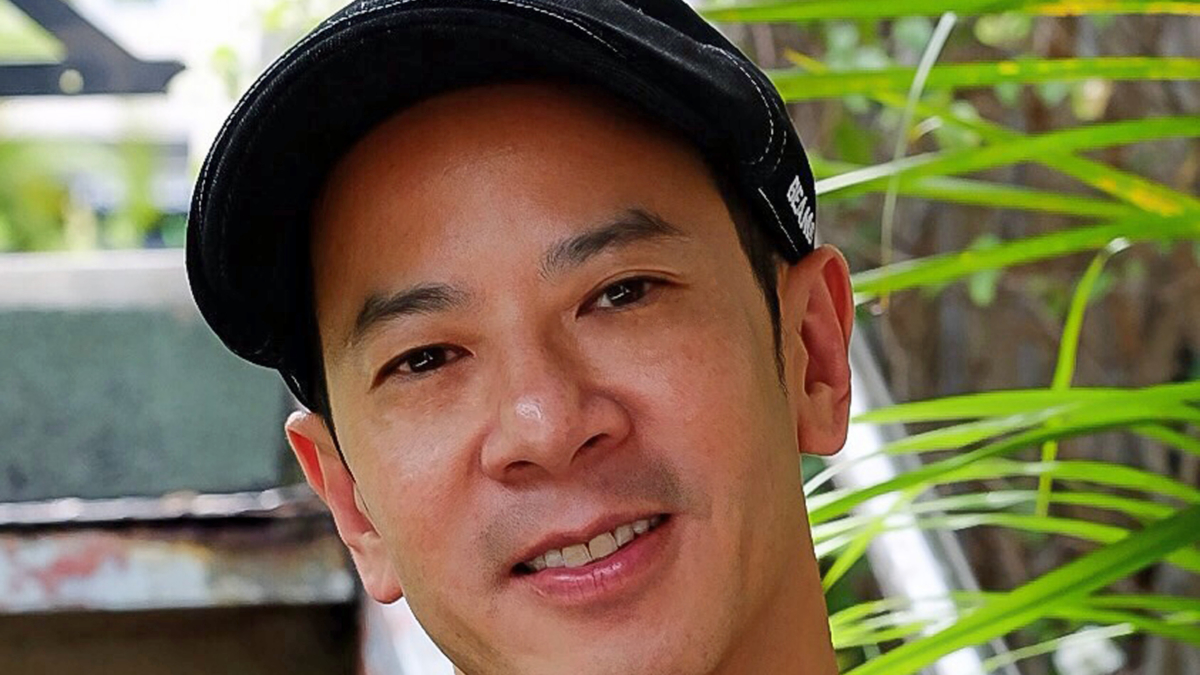CineVue had the singular privilege of chatting with writer/director Ray Yeung about his second feature film, FRONT COVER, which will close AAIFF ’16 on Saturday, July 30 (ticket details). FRONT COVER focuses on Ryan Fu (Jake Choi), a gay celebrity fashion stylist who has rejected his Chinese heritage and must work with closeted actor Qi Ning (James Chen) from China. The two men fight their growing attraction to each other while struggling to come to terms with their own identities in this lighthearted yet profound film.

CineVue: You acted as both writer and director for FRONT COVER. Could you walk us through your writing process?
Ray Yeung: The writing process took a long time, actually. I had the concept and then just write anything that comes into my mind for the first draft. Then I put it away and then I look at it again months later and see what I can get out of it. A lot of the first draft is images and things you can’t really use. After you choose the bits you want, you rewrite the second draft. And you do interviews and research and show it to people and get feedback. I have a few friends who I really trust, and that’s who I show the final draft to.
CV: The fashion world in this film seems eerily realistic. What kind of research did you have to do?
RY: I have a lot of friends who work in the fashion industry and I visited their offices and warehouses. I gave the draft to a friend who’s a fashion stylist. He’d say about the scene with the photo shoot, “This would happen, this wouldn’t happen.” Most of the clothes I borrowed by raiding their closets. [laughs]
CV: Do you prefer writing or directing? What’s the most difficult part of each?
RY: Writing is very enjoyable. It’s just yourself & the computer. You have all the time in the world, and it’s all in your own mind. It’s very personal and kind of like therapy. Shooting is quite stressful—there’s time and money constraints. It’s like going to war. You’re tired and excited. But it’s a quiet and lonely struggle to write. Shooting is a lot of people and like a party.
CV: Were there any scenes you had to cut that you were particularly fond of?
RY: There was a scene with Ryan in the gay club and he leaves and walks around and someone shouts a name at him and he chases after a guy, quite angry. It was a really nice scene, but somehow it didn’t seem to fit. And we just used a little bit of it in the montage.
CV: Did you make any changes to the writing while filming?
RY: All of the time. You find that a lot of what you wrote is not needed, because you can do it by a look, or a gesture, or an action. We cut out a lot of lines during rehearsal. When you go into a location, it can change the mood, and the dynamic of the scene, and you adjust accordingly. By the time you’ve finished your film, the material is quite different from your shooting draft.
CV: Speaking of location, how did you choose New York as the setting?
RY: New York is a fashion capital and also has a very big Chinatown. Ryan is brought up in Chinatown, but has an issue telling people about his background. There’s such a big [economic] range in New York, and you can imagine someone making a journey to climb up. New York is a very good representation of the American dream, really.
[youtube]https://www.youtube.com/watch?v=1wNKp2gq1zk[/youtube]
CV: What was the inspiration for the film?
RY: Growing up in Western society as any ethnic minority, you always try to fit in. And Chinese culture is not seen as something hip or chic, so you try to hide that. The same thing happens in the gay scene where the image of male beauty is Caucasian men who are tall and blond and strong with blue eyes, and you don’t see any sexy Asian men. Your own identity is diminished. The main character tries so hard to fit in [that] he’s literally distanced himself from his cultural heritage. Now that China’s a superpower, many Chinese people who come to the West have a very strong cultural identity and also can be very arrogant. I wanted to have the contrast of someone who’s ashamed of his Chinese heritage meeting someone who’s proud of it. Since I’m gay myself, I thought it would be interesting to turn it around and have the guy from China hide his sexuality and the guy from Western society be openly gay. They are a mirror image of each other.
CV: What do you think about the portrayal of gay people in Asian media? Western media?
RY: In Asia, there’s hardly any representation at all in TV. If there are any, gay characters are comic relief, campy, and one-dimensional. Asian movies with gay storylines usually are sad and have a sense of helplessness. There is very, very low Asian representation in America. In this day and age, it’s quite ridiculous.
CV: Your character Ning has strong feelings about products “made in China.” What’s your stance?
RY: You know, some people look down upon imported goods, which is annoying, and kind of racist. Everyone can afford these nice things cheaply because of mass production we do. They turn the idea around and make it seem like we’re doing something bad, but we’re doing something nice.
CV: How did your filmmaking style evolve from your first film CUT SLEEVE BOYS (2007) to FRONT COVER (2015)? What did you learn from CUT SLEEVE BOYS?
RY: CUT SLEEVE BOYS is much more of a wacky slapstick comedy, heightened [quirkiness]. With FRONT COVER, I wanted to go a little more romantic, classical, realistic. They both approach the same topic, but FRONT COVER is more serious. I learned how to work with actors in CUT SLEEVE BOYS and improvise with them. I could ask an actor to play the other character. Also, I got the confidence that I could do an engaging ninety-minute feature.
CV: What do you hope audiences take away from your film?
RY: For any Asian American, to feel that they have a stronger sense of pride in their heritage. It’s important for audiences to feel they can be proud of who they are. A lot of Asian guys in general only date white guys to upgrade themselves, so to speak. That is a kind of colonized mentality that needs to change. People have to look at themselves and their prejudices and not make sweeping generalizations.
CV: What’s next for you?
RY: I moved back to Hong Kong, where I’m originally from, [which] is going through a lot of changes and struggle that I want to capture before it’s gone. I’m beginning to write a project that hopefully, we can start shooting next summer. It’s more serious social realism.


Get tickets HERE for the AAIFF 2016’s FRONT COVER showing and closing night reception at July 30, 8 p.m. at the Museum of the Moving Image. Director Ray Yeung, actor James Chen and additional cast and crew will participate in a post-screening panel.

